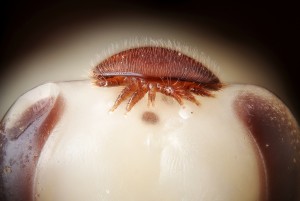Pest Control service at USA Live Bee Removal, serving all Southern California.Keep pests out and your home protected. USA LIve Bee Removal makes sure your home is always protected.
Enjoy our new Article:
Vampire’ mites pick bees with the best blood
The Varroa mite’s life cycle includes two phases: one where they feed on adult bees, called the phoretic phase, and a reproductive phase that takes place within a sealed honeycomb cell, where the mites lay eggs on a developing bee larva.
A new study, published in the journal Scientific Reports, shows that mites clearly prefer to infest adult bees at mid-age, or during the nurse phase of a bee’s life cycle when they take care of larvae, rather than during the younger (newly emerged) or older (forager) phases of an adult bee. Further, the study shows that the physiological type of a host bee has significant effects on the mite’s reproductive fitness and success later on.
Related Topic: Humans are spreading a virus killing millions of bees
“Our study clearly demonstrated that Varroa mites preferred nurses over the older and younger bees,” says Huang, the study’s lead author. “Further, we showed that feeding on different hosts gave them different reproductive outputs.”
Previous studies have shown that the mites can easily choose their reproductive hosts, but the new research shows that they can go one step further: the mites can correctly pick the most nutritious bees to suck blood from.
“This might seem very smart for the mites because they do not realize the reproductive advantage right away, but through natural selection this is rather easy to achieve,” Huang says. “The mites who made the correct choice will have more babies and their genes will become more dominant over time.”
“If you know your enemies better, you can come up with new ways of controlling them.”
The findings helped researchers zero in on mite reproductive and nutritional preferences and are a significant step in understanding the mysterious, parasitic relationship between the Varroa mite and the honeybee, Huang says. “This is an important step in understanding mite reproductive biology. We can utilize this information as a step toward finding ways to regulate them.” Huang will next look to identify what precise factors the mites are relying on for their reproductive success. “If they require a certain factor to have babies we can regulate that factor without affecting the bees—only the mites—and reduce their reproduction. Instead of killing them with a chemical, this could eventually lead to a more natural way of mite control and a better outlook for honeybees.” Other researchers from Michigan State and from Jiangxi Agricultural University in China are coauthors of the work.
The findings helped researchers zero in on mite reproductive and nutritional preferences and are a significant step in understanding the mysterious, parasitic relationship between the Varroa mite and the honeybee, Huang says. “This is an important step in understanding mite reproductive biology. We can utilize this information as a step toward finding ways to regulate them.” Huang will next look to identify what precise factors the mites are relying on for their reproductive success.
“If they require a certain factor to have babies we can regulate that factor without affecting the bees—only the mites—and reduce their reproduction. Instead of killing them with a chemical, this could eventually lead to a more natural way of mite control and a better outlook for honeybees.” Other researchers from Michigan State and from Jiangxi Agricultural University in China are coauthors of the work.
Call USA Live Bee Removal Today! 951-476-8495
Need a Quote? you will get a response in few minutes.


